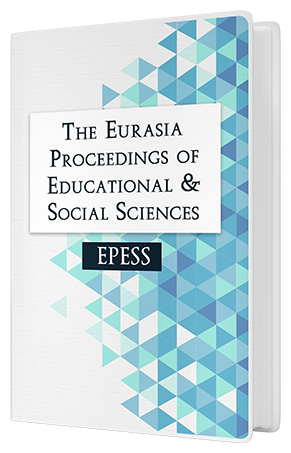Evaluation of Distance Education in Social Studies Lesson in Turkey
Keywords:
Distance education, social studies education, educational technologyAbstract
It can be said that technology-based developments affect the life of human beings in the field of education as in many other areas. Its effects in the field of education, increasing the variety of technology based materials used in the learning environment, contributing to improving teacher competencies (such as the ability to use smart boards), implementing technology based package applications for meaningful, concrete and permanent learning, accessing many resources related to the course in a technological environment and distance education. It can be glazed. Covid-19 outbreak of the fore distance education in Turkey, as in many other areas of social information it has become remarkable position in the education field. Distance education, which is based on simultaneous and live transmission, can also be given from the recording. It is also used in the transfer of content of work areas that include many disciplines such as distance education and social studies, which bring together teachers, students and instructional technologies in different places through web technology. In this study, which was carried out by İnönü University BAP unit with the project ID number SBA-2019-1755, it was aimed to evaluate the transfer of social studies education study field through distance education in line with the perceptions of social studies teachers. The study to achieve this goal was carried out with a case study model. As a result of the study, field experts made remarkable evaluations on the subject.Downloads
Published
Issue
Section
License
Copyright (c) 2020 The Eurasia Proceedings of Educational and Social Sciences

This work is licensed under a Creative Commons Attribution-NonCommercial-ShareAlike 4.0 International License.
The articles may be used for research, teaching, and private study purposes. Any substantial or systematic reproduction, redistribution, reselling, loan, sub-licensing, systematic supply, or distribution in any form to anyone is expressly forbidden. Authors alone are responsible for the contents of their articles. The journal owns the copyright of the articles. The publisher shall not be liable for any loss, actions, claims, proceedings, demand, or costs or damages whatsoever or howsoever caused arising directly or indirectly in connection with or arising out of the use of the research material. All authors are requested to disclose any actual or potential conflict of interest including any financial, personal or other relationships with other people or organizations regarding the submitted work.




